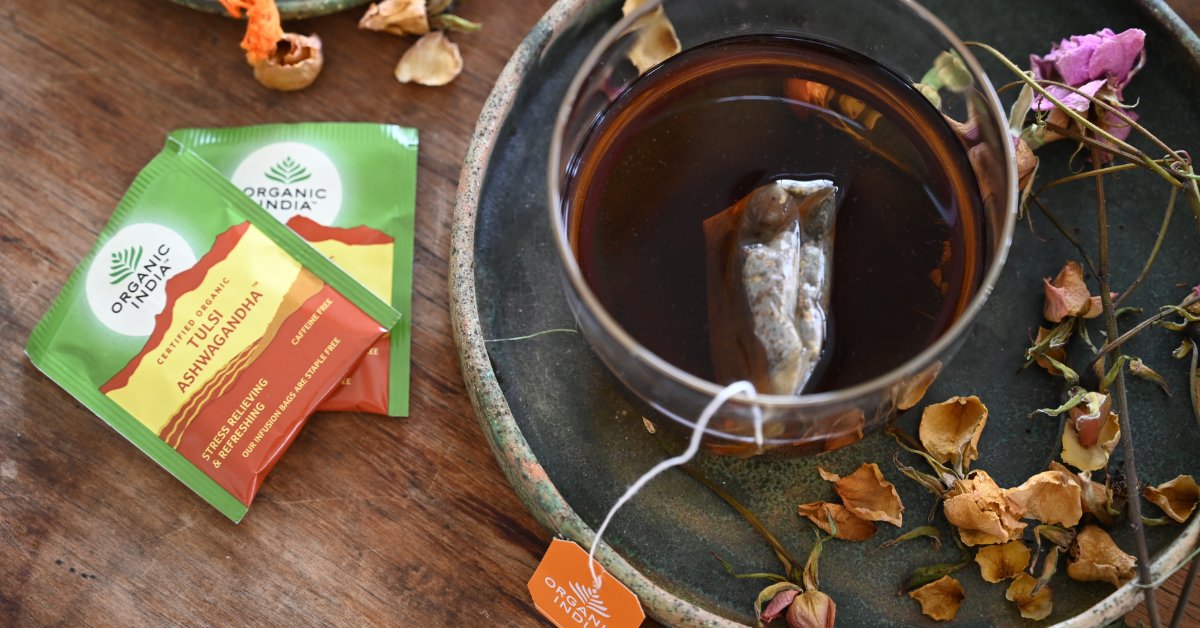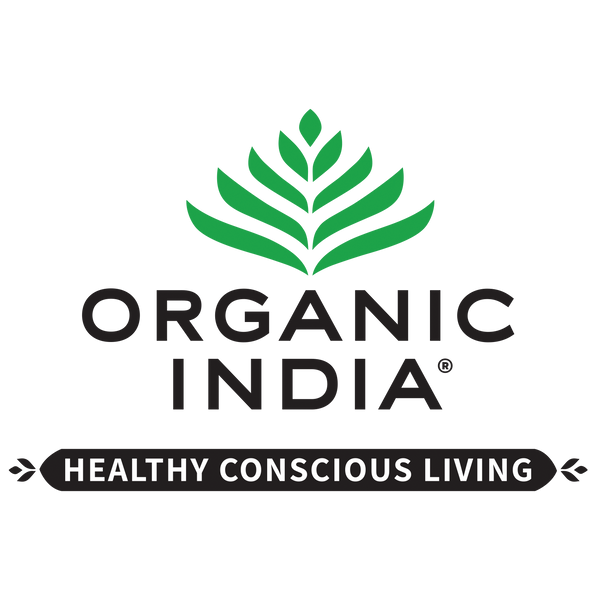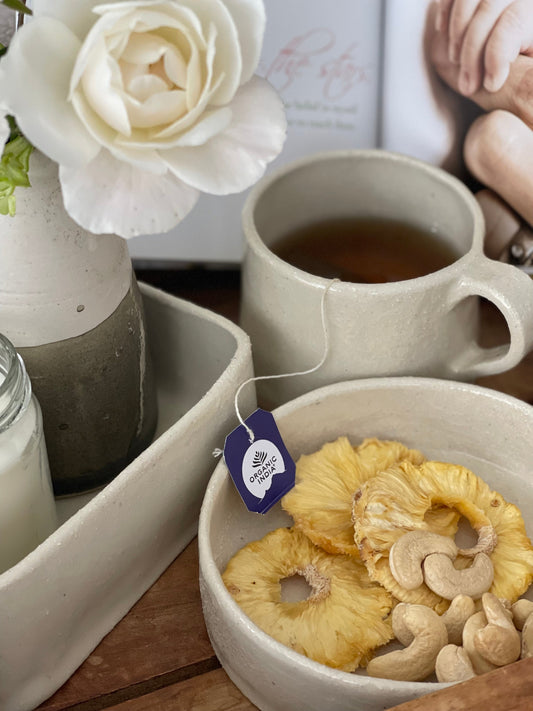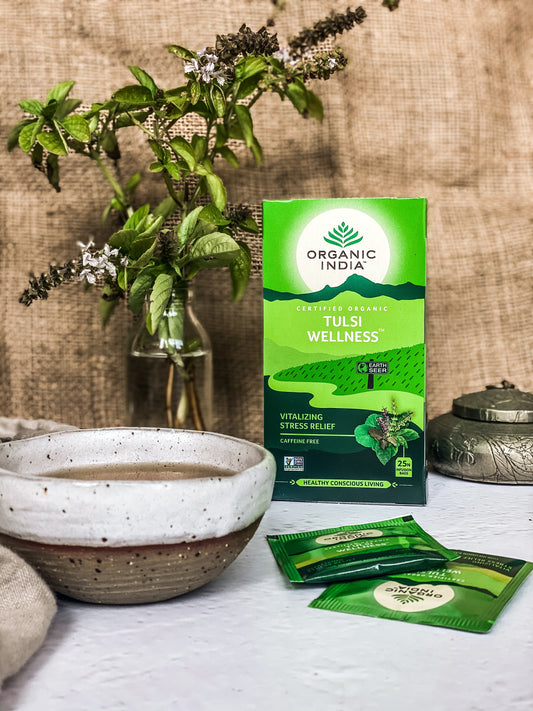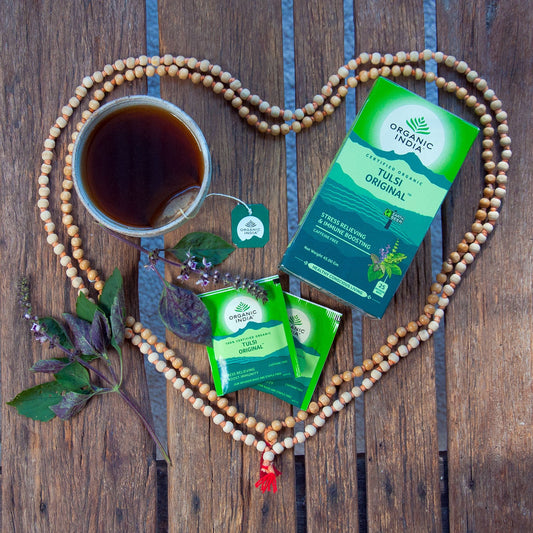It may seem too good to be true, but cinnamon is as healthy for you as it is tasty — and its positive effects on the immune system make it unique among herbs and spices. And, quite happily, instead of taking it in supplement form (though that is a great way to ensure you’re getting enough for a health-promoting effect), you can get enough cinnamon simply by adding it to your food consistently.
There are numerous varieties of cinnamon. ORGANIC INDIA farms Ceylon (with scientific name Cinnamomum zeylanicum) in its estates in southern India, though its origins lie just across the water, in Sri Lanka. Somewhat confusingly, Ceylon cinnamon is also known as Cinnamomum verum, with the word “verum” meaning “true.” This “true” cinnamon is sweeter and offers a heightened delicate taste, in contrast to the more common cassia cinnamon.
But often overlooked, cinnamon is referred to as a superfood because of its multiplicity of benefits. Researchers have identified Ceylon cinnamon for offering antioxidant and anti-inflammatory properties, reducing insulin resistance, and aiding the liver in metabolizing glucose (sugar). Western medical science also reports that Ceylon cinnamon’s tannins may assist in wound healing by acting as an astringent, and it may also prevent diarrhea. Further, the plant has been studied for its use in treating blood sugar issues, and has exhibited active ingredients that address various neurological disorders. Much of these benefits are closely linked with cinnamon’s support of the immune system.
Inflammation and the Immune System
Ceylon cinnamon is, perhaps most notably, an immune booster. Of particular relevance, as of late, is that more and more people are becoming aware of the immune system’s function in prevention, healing, longevity, and optimal health. Clearly, disease is a process that overwhelms the immune system, which comprises myriad organs, cells, and systems of the body — as a joint effort to keep the entire organism healthy.
Medical News Today reported that Ceylon cinnamon exhibits anti-inflammatory, antioxidant, and antimicrobial effects beneficial to immune health. Antioxidants are substances known to prevent or slow damage to cells caused by free radicals, which are unstable molecules produced by the body in reaction to environmental and other factors. So, regardless of the “foreign invader” threatening the health of the body, cinnamon can be of value as a spice in food recipes or in supplement form.
While it is true that cinnamon contains anti-inflammatory properties, this idea can be a bit misleading when it comes to the role of inflammation in the body. Inflammation is a response to trauma, which means that it is a natural process designed to protect, heal, and bring nutrients to the site of the damage or threat. When the immune system is working optimally, it responds by increasing heat to the site of a wound or disease, increasing water retention to the area, and bringing white blood cells to defend against microorganisms.
Thus, inflammation is a beneficial process needed for health and recovery, and not an ailment. Nevertheless, modern medicine relies on certain drugs because inflammation is often viewed as an obstacle to recovery rather than a natural and necessary bodily response. Ayurveda, on the other hand, is holistic in its approach, addressing inflammation as the response to an imbalance. Using cinnamon, among other herbs, to compensate for this imbalance enables the body to do what it innately knows how to do.
Cinnamon is Rich in Flavonoids
Cinnamon researchers have identified many types of flavonoids in cinnamon, all of which are effective at lowering inflammation levels that rise too high throughout the body. Flavonoids are powerful antioxidant compounds that naturally occur in many fruits, herbs, spices, and vegetables.With such high levels of flavonoids, Ceylon cinnamon is adept at helping your body ward off everyday toxins and other “foreign invaders,” thereby working toward the preservation of your overall health and lowering your risk of certain chronic health conditions.
Getting Cinnamon in Your Diet
There are many ways of introducing Ceylon cinnamon into your diet to feed your immune system. You can ingest it in supplement form, sprinkle cinnamon on your food, brew a cup of cinnamon rose tea, add cinnamon to your morning coffee, baking cinnamon breads and cakes, mixing cinnamon in with your oatmeal, and so forth. Cinnamon’s sweet, spicy flavor is a key ingredient in pastries, curries, and lattes worldwide.
Because your health — and immune system — begins with your digestion, cinnamon is the ideal spice to light up your digestive fire. Thanks to its warming properties, cinnamon is good for pacifying Kapha and balancing Vata doshas. Pitta types will also find cinnamon beneficial, but in smaller quantities.
